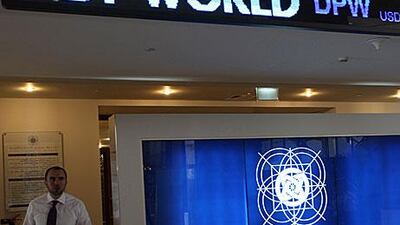I like speaking at conferences and panel discussions. You can speak your mind, stir up a debate, play devil's advocate and generally cause a bit of a brouhaha.
A lot depends on the audience reaction, of course. Some sit there sullen and bored but others get involved, pose questions, take issue with the panel's position.
You know you've done your job as a panellist when there is a small queue of people still wanting to pose questions after the discussion is over.
In Abu Dhabi this week, I took part in a discussion at the annual MEED Capital Markets Forum. The topic was "private versus public equity" - on the face of it a fairly dry subject. But the brief to me was clear: "start a punch-up" was the concise instruction from MEED's Eddie O'Sullivan, the conference organiser. Well, what an invitation, although on this particular subject I didn't really need such leeway. As I told the conference, I don't much like private equity, mainly because it's too … well, private.
I come from a business culture of public accountability and transparency in commerce and, although it has its imperfections, I believe it is the best way to run businesses and capital markets.
Share prices, annual reports and meetings, analysts' reports and a well informed and constructively critical financial media - these are the essentials of the public equity culture and I believe they are intrinsically desirable and valuable things.
True, as the indefatigable Mr O'Sullivan pointed out, these qualities did not prevent the financial crisis, which, as we all know, began in the public-quoted West and then infected the rest of the world. But those same qualities did not cause the crisis, nor did they exacerbate it.
In contrast, you could argue that insufficient public transparency in some emerging markets, such as Dubai, was partly responsible for the virulence and severity with which the financial hurricane hit.
One of my co-panellists was Salah al Fulaij, the chief executive of the Kuwaiti finance house NBK Capital. He argued persuasively that private equity was well suited to the needs of corporates in the Gulf, providing an essential stepping-stone between the predominant family-controlled model of business structure and eventual public listing.
But I still believe the sheer privateness of much business activity in the Gulf is not a good thing and private equity only reinforces the region's natural tendency to opaqueness and secrecy in commercial transactions.
The best remedy, I suggested, would be a raft of public listings, especially for some of Dubai's big government-owned enterprises, such as the Jumeirah leisure business, Emirates Airline and DP World. The last example got it going.
The Dubai ports operator already has a public quotation on NASDAQ Dubai but its performance since flotation in 2007 has been lukewarm to say the least. Floated at $1.30, the shares have never since hit that level and now trade at around 60 cents. I suggested the planned listing of the shares on the London Stock Exchange would remedy this by injecting liquidity and volume into the stock.
I noticed a chap in the audience shaking his head as I said this but it was only later, after the panel session ended and he tapped me on the shoulder, that I realised it was Jeff Singer, the chief executive of NASDAQ Dubai. Mr Singer wanted a word, to put me straight on the DP World matter and we slipped outside the conference room to carry on the debate.
His argument, elucidated over croissants and coffee, was that investors would value DP World on price rather than on what exchange the shares are traded; the DP World performance has improved dramatically since the merger of NASDAQ Dubai and the Dubai Financial Market in July, which has provided a common platform for trading; and a London listing would have no appreciable long-term effect on the share price.
The statistics he reeled off to support his argument were impressive: DP World shares are up more than 30 per cent since the common trading platform was introduced and have been among the top five stocks in terms of volumes traded on more than half the trading days in that period, regularly beating market heavyweights such as Emaar and Emirates NBD.
To a degree, I stood corrected. But Mr Singer's is not a view shared by one important party to this debate: DP World. It is convinced a London listing would benefit the company and investors by making it accessible to a much broader spectrum of international investor interest.
About 70 per cent of the quoted shares are currently held by non-UAE investors, demonstrating the international appeal of the company. But many global investors either cannot invest in Dubai entities due to the terms of their investment mandate, or chose not to, due in part to concerns about standards of transparency in the region.
DP World believes the London listing, pencilled in for next spring, will be a springboard for the shares; Mr Singer believes they are unlikely to ever see $1.30 again.
We shall see. Mr Singer and I have agreed that whoever turns out to be wrong will buy the other lunch.
